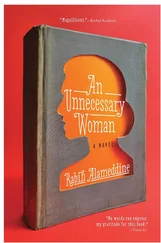“But he told a story every evening after dinner, and all came to listen to him.”
“Pfflt.” He waved his hand and lit another cigarette. “I didn’t say all came to listen. All the foreigners did. At the time, there were no hotels or inns or anything like that in Urfa, so the foreign travelers stayed with the doctor. Those foreigners were always impressed with the doctor’s storytelling. They didn’t know any better. If they spoke Turkish, they could have gone to the café in the Eyyubiye neighborhood and listened to a good hakawati. If they spoke Kurdish, they might have had to ride for an hour south, because the best hakawati in the region was in a village up Damlacik Mountain. And the Armenian storytellers, my God, they were all over. But the doctor never listened to any of them, and neither did anyone who stayed at the house. Before I knew any better, I enjoyed the doctor’s stories. But then he kept repeating the same ones over and over. No imagination. And heaven forbid, if he should forget something, his wife was right there to correct him. Who needs that? I wish someone had told me about what went on outside the doctor’s puny realm. I had to find out on my own — the hakawatis, the pigeon wars, the traditions — I discovered it all by chance. Had the doctor’s wife not been wicked, I might never have seen the world, and you certainly wouldn’t have been born — now, would you?”
When he left to pee, I ran back to the table, climbed up the chair to the tabletop, and tried to find Urfa again, tried to find the mountain where the best storyteller was.
“You’re so ugly,” Ishmael told Isaac, “and you sure have the biggest nose I’ve ever seen.” The fourteen-year-old laughed, and in his arms, baby Isaac smiled with him. It was the baby’s weaning ceremony.
Sarah took her husband aside. “Look. He mocks my son. I will not have it. The slave’s son deems himself superior. Cast him out, I tell you. Cast them both out.”
Abraham tried to reason with his wife. They had sent Hagar and Ishmael away once before. It was not right. It was not fair.
“Cast them out again, and this time don’t go back for them.”
And Abraham sent his son away, never to see him again, father and son separate for eternity. To quell the pain in his heart, Abraham tried to forget his elder boy, distracted himself with extra chores and trivial whatnots, but the boy never forgot his father. When Abraham died, Ishmael returned to bury him. Ishmael and Isaac buried their father in the Cave of Machpelah, in the field that Abraham had purchased from the Hittites.
“This is now the Tomb of the Patriarchs in Hebron,” my grandfather said, as his finger settled on the fading map upon the rickety table, “where the sons of Sarah are still trying to cast out the sons of Hagar.”
“Tell me the story of Abraham sacrificing Ishmael on the mountain.”
“No, I already told you that one. It’s common, too common. Boring, even. It was the doctor’s favorite story, and he told it so badly. It’s so hackneyed and clichéd. A story needs to be bewitching.”
Once, not too long ago, there was a little boy, about the same age as you, who lived with his family in a small village, not unlike this one, not too far from here. The family did not have much money. The father was a stonemason, the mother looked after the house, cooked delicious meals. All the children had their own chores to do. Our boy was the family’s shepherd.
Every morning, he would take the sheep out to pasture. He watched them graze, made sure they did not wander, and protected them from foxes, wolves, and marauding hyenas. The sheep liked him and trusted him, so they didn’t stray far from our boy. His job became easy, and every day he had time to play. At first, he played with sticks and stones: he made a sheep pen by staking twigs in four corners; small stones were his sheep. But then the little lambs came into his make-believe pen, clamoring for his attention. So he stopped playing with sticks and stones and became one of the lambs, jumped with them, bent down and pretended to chew on the wild-lavender bushes, bleated with them.
When he returned home that evening, he wished he were a lamb because he had had fun playing. Before he went to sleep, he heard his parents arguing about money. “We have so many mouths to feed,” the mother said. “How can we find enough for all of them?”
“We have the sheep,” the father said. “We have some money. I am working. We’ll survive. We have for generations.”
But they kept on arguing, and the boy slept fitfully.
The following day, he and the lambs played again, watched over by the ewes. The boy and the lambs ran and jumped and jostled each other. He returned home very happy, but when he opened the door to tell his parents all about his day, he found them arguing.
“How could you have promised that?” the mother asked. “We don’t have enough to feed our children, and now you want to have a feast? Have you no conscience? Don’t you understand how bad our situation is?”
“How dare you?” the father yelled at the mother. “This is the bey we’re talking about. It’s an honor. When he comes here, the house will be blessed. I don’t understand how you can think of not wanting him in your home. Most people would die for the opportunity.”
The mother whispered, “What has the bey done for my family?”
The father slapped the mother. The boy ran into his room.
Before he fell asleep, our boy prayed. He wished he were a lamb and could play all day without any worries. He wished his family could be happy. He wished that he could be the one to provide them with happiness. He loved his family so much. He woke up the next day in the sheep pen. He looked around and saw all his friends, the other lambs, happy that he was in their midst, finally one of them. They bleated in joy. All of them pranced up and down.
The father and mother came out of the house together and walked toward the pen.
“Danger, danger,” said the eldest ewe. “The evil ones are here.”
“No, no,” said our boy. “They are not evil. They are my family.”
“When those two show up together,” another sheep said, “one of us disappears.”
The father and mother came into the pen. They tried to figure which lamb to pick.
“Look at me,” the boy yelled. “Look at me. Look at me.”
“This one,” the mother said. “He is noisy.”
“He looks plump and juicy,” the father added. He placed the noose around his boy’s head and walked him out of the pen.
“The poor lamb,” the eldest ewe said as the sheep watched him being taken away.
“Daddy, Daddy,” the little lamb said. “I’m a lamb now. Isn’t this a miracle?”
And his father took out the knife and slit his throat.
And the little lamb watched his own blood leave him.
And his father cut off his head.
And his father hung him from his ankles to drain him.
And his mother began to skin him with her own hands. She would lift a small part of his skin and punch between the skin and body, lift, punch, lift, punch, until she finally cut the last attached skin at his ankles. And she chopped off his feet and hands. And she took out all his insides. And his mother cooked him over a slow-burning fire.
His father waited. His mother cooked. His brothers helped set up the large table under the giant oak. His sisters cleaned the house and cleaned and cleaned. They got dressed in all the fineries. By lunchtime, they were lined up waiting. The mother wondered where our boy was. His brothers suggested he must be daydreaming somewhere as usual. He had gotten out of doing the chores, that sneaky brat. The family waited and waited and waited. Finally, the mayor arrived and said that the bey had decided not to come to the village.
Читать дальше












